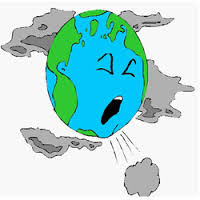Air pollution in the European Union is causing premature deaths even when levels meet quality guidelines, a report has shown. Even in areas where pollution was much lower than the limit, scientists found there is a higher-than-normal risk of death.
The study, published by the British Medical Association’s journal The Lancet, found that Europeans who have had prolonged exposure to pollution from industrial activities or road traffic have a higher chance of premature death. The increased risk to a person’s health is linked to tiny particles of soot and dust than can get lodged in the lungs and cause respiratory illnesses.
The study, carried out by Utrecht University in the Netherlands, found the particles measure 2.5 microns or 2.5 millionth of a meter. Exposure for “up to a few months” to particles of 2.5 microns can increase the risk of premature death.
As part of the study the researchers drew on 22 previously published studies that documented the health of 367,000 people in 13 countries in Western Europe over 14 years. Beelen and his team then traveled to the areas where the participants lived and took traffic pollution readings that they used to calculate how much pollution local residents were exposed to.
During the investigation, 29,000 of the 367,000 participants recruited in 1990 died. In order to increase accuracy, investigations also took into account such factors as physical exercise, body mass, education and smoking habits.
European Union guidelines set the maximum exposure to particles of 25 micrograms per cubic meter. Beelen says the results of this study are evidence the EU needs to reset its safety limits to 10 micrograms per cubic meter.
The World Health Organization has classified outdoor pollution as one of the principal causes of cancer and estimates around 3.2 million people die every year globally as a result of prolonged exposure.
Source: rt.com
B.N

